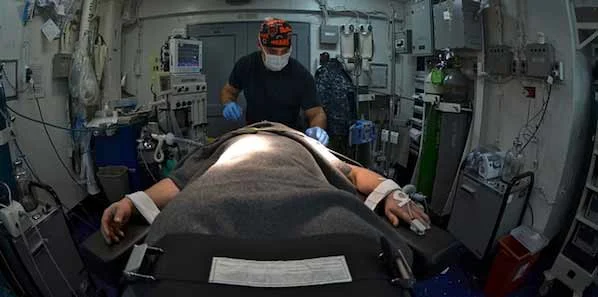Despite the trauma associated with invasive surgery, standard surgical protocols often restrict a patient’s diet and exercise before and after an operation. Doctors are beginning to question the wisdom behind such procedures, which were probably originally put in place to benefit surgeons more than patients. If patients are able to prepare for and recover from surgery by continuing their normal routines and avoiding the intravenous administration of nutrition and narcotics, some complications may be avoided altogether.
Rethinking the Regimen
“I think the more you do to disturb the natural body before you go into surgery, the harder it is to recover,” says Dr. Robert Cima, surgical safety and quality committee chair at Minnesota’s Mayo Clinic. Despite the lack of scientific support, it stands to reason that patients may recover more rapidly when the body has the energy to rebuild itself.
The body’s ability to recover from traumatic surgery depends upon adequate nutrition. By denying patients food after midnight on the day before an operation, restricting them to liquid diets or requiring colon cleanses, energy is depleted without being replaced. After surgery, eating is often not allowed until patients are cleared by the doctor. Depending on the type of surgery, this may truly benefit the patient, but it can also complicate recovery.
Post-Surgical Protocols
Following surgery, many patients are denied solid food and live for a day or two with a nose tube, in order to safeguard the surgeon’s work. According to Dr. Cima, there is no scientific evidence to support the benefit of such a practice. In fact, it can cause complications that actually make the practice less beneficial for the doctor and the patient alike.
Improvements have been documented at the Mayo Clinic and other institutions, which support the benefits of allowing patients to continue their routines before surgery and returning them to normal diet and exercise behaviours afterwards. “We should be trying to get the patient back to being who they were beforehand -- starting to eat real food, getting up, walking around, avoiding systemic narcotics,” said Dr. Cima.
Patient Care Coordination
In addition to rethinking existing protocols, Dr. Cima believes that the most effective peri-operative regimen is one in which an integrated care team works together for the benefit of the patient, something that eludes many systems. Anaesthesiologists, nurses and surgeons each play important roles and their cooperation is essential, so it can come as a shock to patients undergoing surgery that different members of the surgical team might not know each other before meeting in the operating room.
The Mayo Clinic is known for its integrated model of patient care, but only in the past five or six years has it made substantial changes to how surgical team members interact. Each morning, a briefing is held outside of the operating room during which anaesthesiologists, surgical assistants, residents and nurses meet. Their names are posted on a board and they have an opportunity to talk before the procedure begins. The hope is that coordinated patient care will become the new norm in hospitals across the country.
Photo Credit: Google Images / Wikimedia
Latest Articles
Guidelines, Surgery, anaesthesia, patient care, pre-operative care, protocol, post-operative
Despite the trauma associated with invasive surgery, standard surgical protocols often restrict a patient’s diet and exercise before and after an operati...










